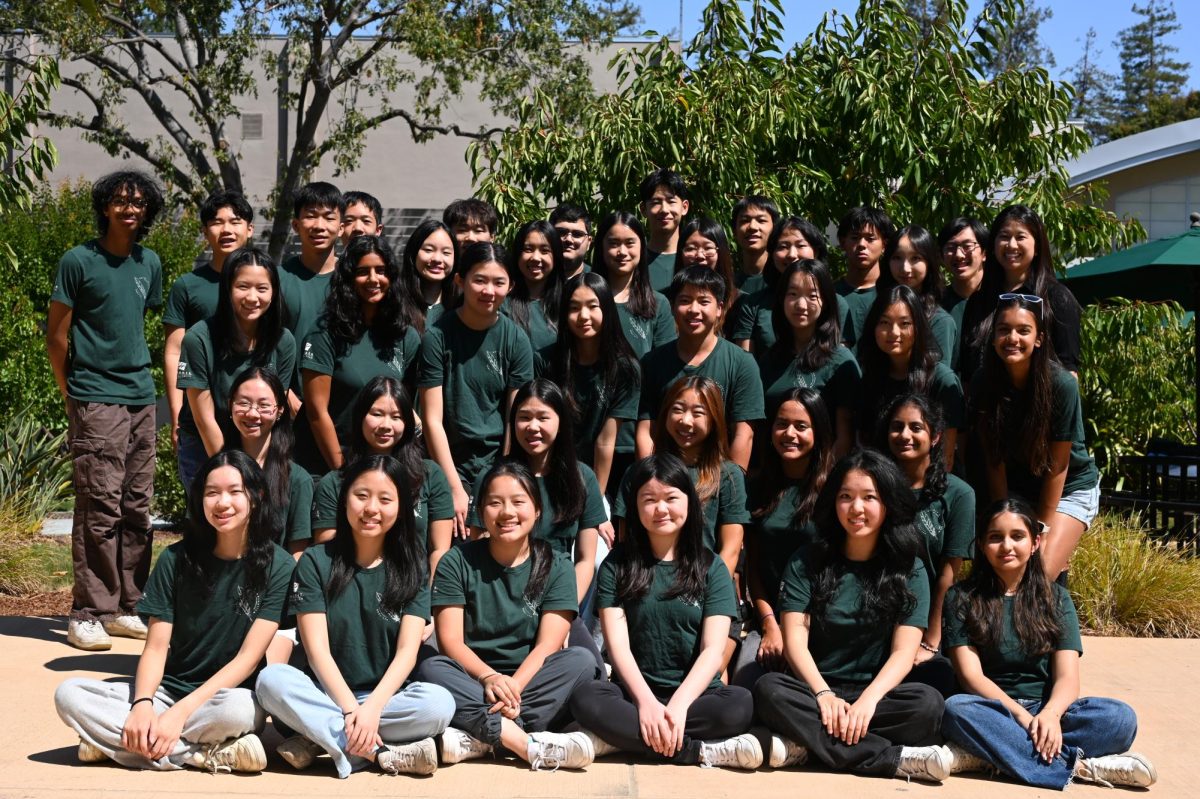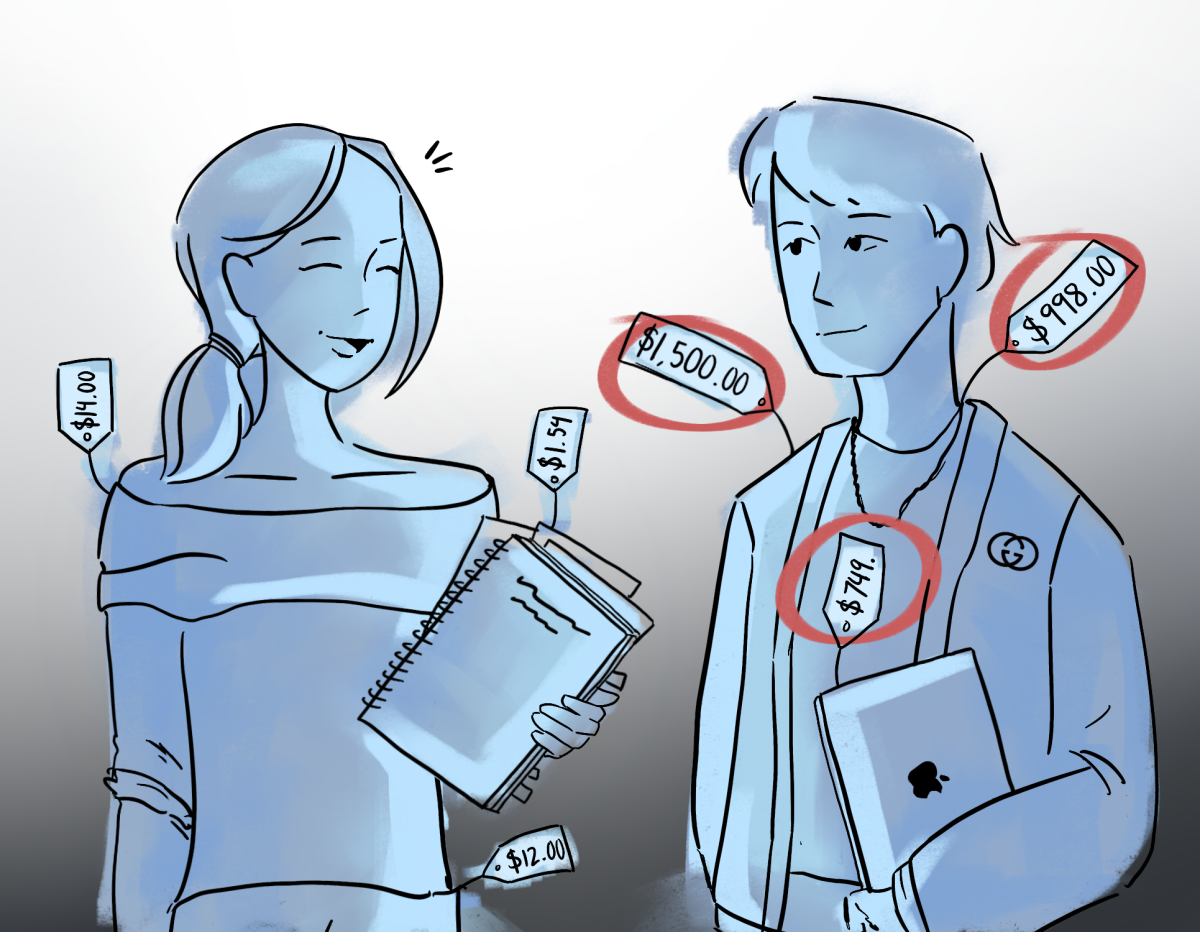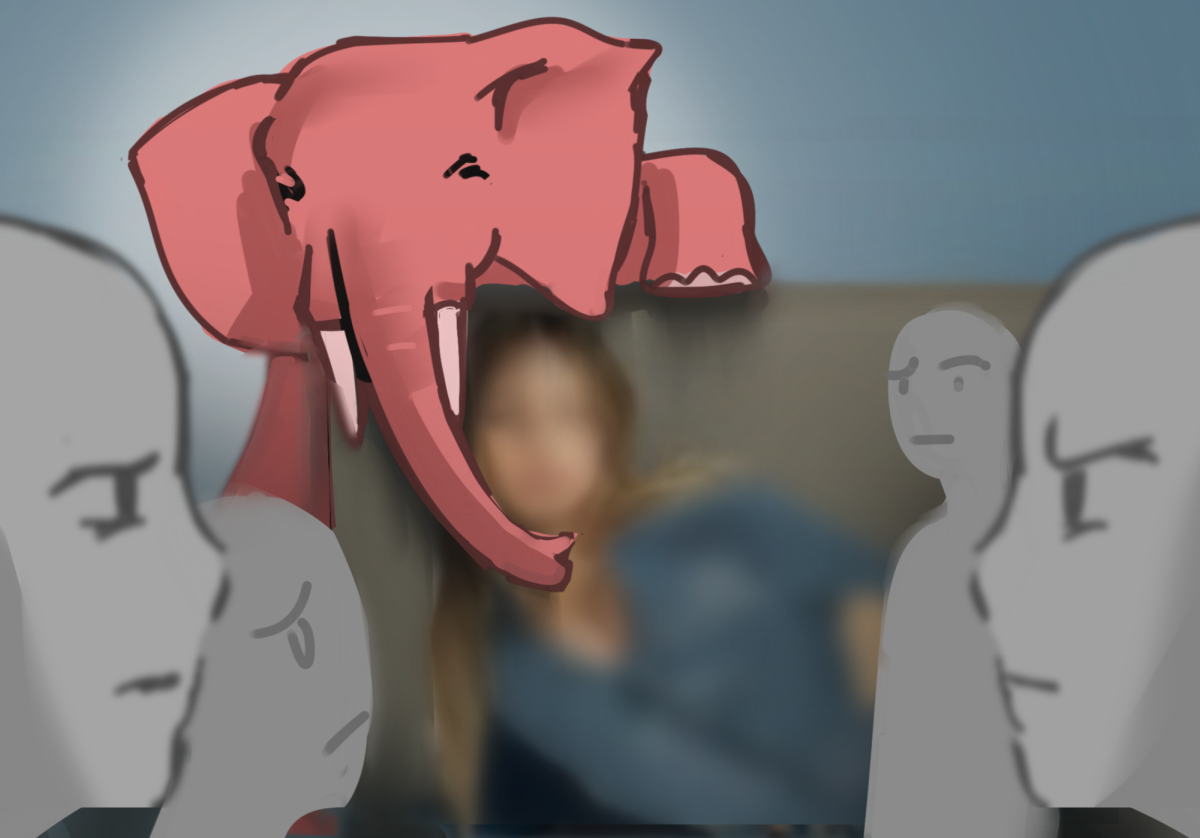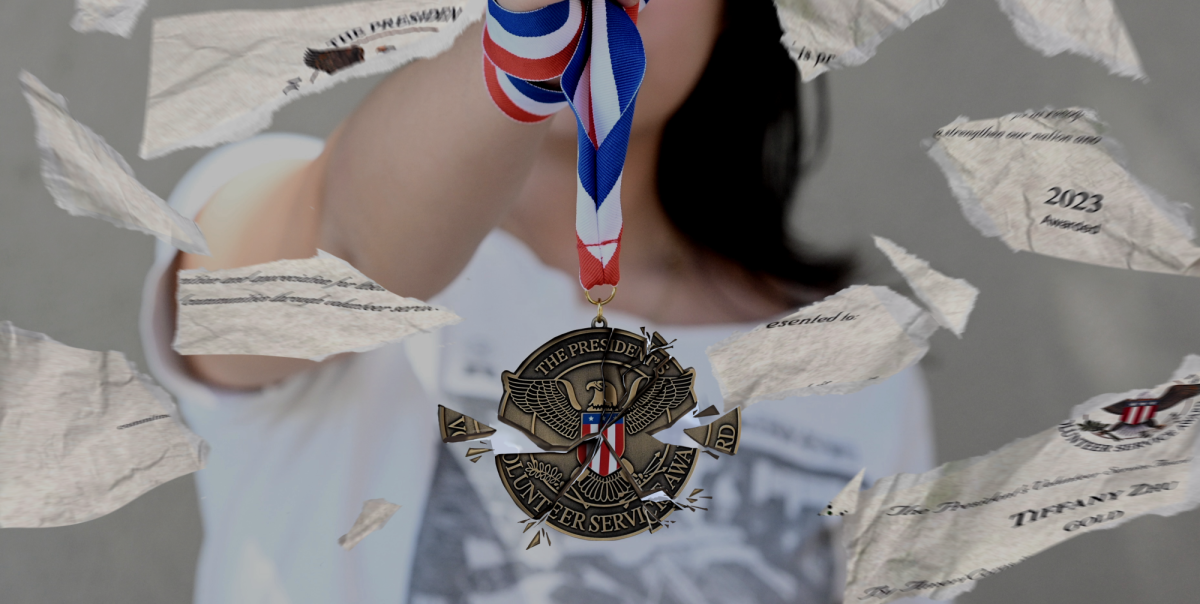Immersing themselves into the world of business, many Upper School students participate in competitions through DECA, an organization that encourages students to create content while colliding with their intellectual property rights.
Before submitting a written business plan to a conference, participants are required to sign a “Written Statement of Assurances” stating that the DECA association claims rights to publishing ideas and plans created through the organization.
This statement has not affected the Harker Business Club (HBC), which currently consists of approximately 100 members. They enter three competitions each year, which entail writing and presenting five to 30 page business plans based on real or hypothetical companies. Students choose events in areas of business inclusive of business management, finance, hospitality, and marketing.
Two-year DECA member Adarsh Battu (11) explained that he has not considered patenting his ideas that he submits to DECA competitions, so the Statement of Assurances does not deter him from entering his plan into the contest.
“I don’t have that much money, and I don’t think I would get invested in,” he said.
HBC Vice President Andre Jia (12) agreed that the statement of assurances does not affect his submissions.
“[The] Statement of Assurances is there so that DECA can publish the plan if they wanted–I am fine with that, as I would never really gain from publishing my plan on my own,” he said.
However, some students like Belinda Zeng (12), a student at Monta Vista High School and the President of California DECA, patent their DECA ideas.
As a freshman in high school at her first conference, Belinda competed in two events: an Entrepreneurship plan and a Fashion Merchandising Promotion event. She created a fashion system that would allow online shoppers to try clothes online and find the best fit. She discovered that her idea was feasible at this conference.
“This is something that can be workable, and this is something that can legitimately become the next greatest startup in Silicon Valley,” Belinda recalled her NorCal Career Development Conference judge telling her.
With that vital encouragement, she looked to her DECA advisor, venture capitalists, her mother, and a patent lawyer for more advice. Although it was originally rejected by the United States Patent and Trademark Office, she reworked her plan, and the patent was accepted in her junior year.
In regard to DECA’s ownership of business plans, Belinda was able to avoid any conflict with the organization since her two similar business plans from her freshman year had different business models.
“That’s why I didn’t get into any issues with DECA because it was two distinctly different plans. That’s kind of where I dodged the bullet,” Belinda said. “My sophomore year, [I] found out this plan really isn’t ours anymore. DECA is taking it, DECA is publishing it.”
For students interested in potentially starting a business with their DECA plan, she offers some advice.
“I guess it is definitely a trade-off […] My advice would be go for it: write the DECA plan anyway. Chances are you will be changing it a lot through advice you get,” she said.
Shane Thomas, Director of Competitive Events at DECA Inc. gave the verdict on students submitting business plans to DECA.
“You are correct that copyright, patent, trademark, etc. laws prevail,” he said in an email response. “The only property we claim is the winners that we publish as samples. We send those students a stipend if their work is published. Students should still be able to patent their ideas even if it is submitted as a DECA project.”
Creating innovative marketing and entrepreneurial plans, Upper School DECA members are currently preparing themselves for the Statewide Career Development Conference during the first weekend of March.
The Students as Content Creators (SACC) project is an ongoing series of articles that relate the process of young people producing their own ideas in various areas of business, science, art, music, theater, and more. Some stories also examine potential conflicts that may arise due to ownership issues.
The SACC symbol used in this article is a derivative of the trademarked Creative Commons logo.


















![“[Building nerf blasters] became this outlet of creativity for me that hasn't been matched by anything else. The process [of] making a build complete to your desire is such a painstakingly difficult process, but I've had to learn from [the skills needed from] soldering to proper painting. There's so many different options for everything, if you think about it, it exists. The best part is [that] if it doesn't exist, you can build it yourself," Ishaan Parate said.](https://harkeraquila.com/wp-content/uploads/2022/08/DSC_8149-900x604.jpg)




![“When I came into high school, I was ready to be a follower. But DECA was a game changer for me. It helped me overcome my fear of public speaking, and it's played such a major role in who I've become today. To be able to successfully lead a chapter of 150 students, an officer team and be one of the upperclassmen I once really admired is something I'm [really] proud of,” Anvitha Tummala ('21) said.](https://harkeraquila.com/wp-content/uploads/2021/07/Screen-Shot-2021-07-25-at-9.50.05-AM-900x594.png)







![“I think getting up in the morning and having a sense of purpose [is exciting]. I think without a certain amount of drive, life is kind of obsolete and mundane, and I think having that every single day is what makes each day unique and kind of makes life exciting,” Neymika Jain (12) said.](https://harkeraquila.com/wp-content/uploads/2017/06/Screen-Shot-2017-06-03-at-4.54.16-PM.png)








![“My slogan is ‘slow feet, don’t eat, and I’m hungry.’ You need to run fast to get where you are–you aren't going to get those championships if you aren't fast,” Angel Cervantes (12) said. “I want to do well in school on my tests and in track and win championships for my team. I live by that, [and] I can do that anywhere: in the classroom or on the field.”](https://harkeraquila.com/wp-content/uploads/2018/06/DSC5146-900x601.jpg)
![“[Volleyball has] taught me how to fall correctly, and another thing it taught is that you don’t have to be the best at something to be good at it. If you just hit the ball in a smart way, then it still scores points and you’re good at it. You could be a background player and still make a much bigger impact on the team than you would think,” Anya Gert (’20) said.](https://harkeraquila.com/wp-content/uploads/2020/06/AnnaGert_JinTuan_HoHPhotoEdited-600x900.jpeg)

![“I'm not nearly there yet, but [my confidence has] definitely been getting better since I was pretty shy and timid coming into Harker my freshman year. I know that there's a lot of people that are really confident in what they do, and I really admire them. Everyone's so driven and that has really pushed me to kind of try to find my own place in high school and be more confident,” Alyssa Huang (’20) said.](https://harkeraquila.com/wp-content/uploads/2020/06/AlyssaHuang_EmilyChen_HoHPhoto-900x749.jpeg)











